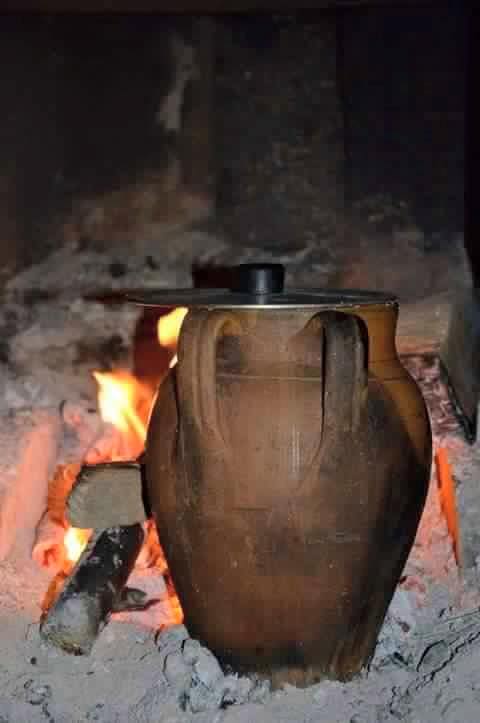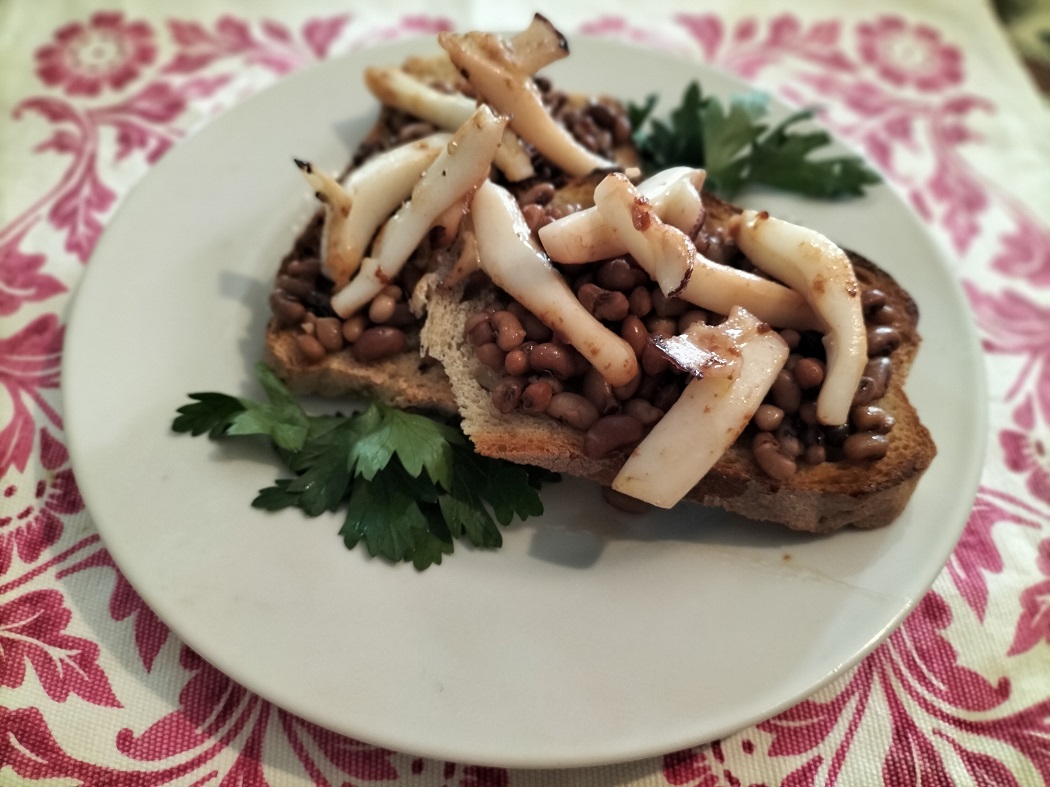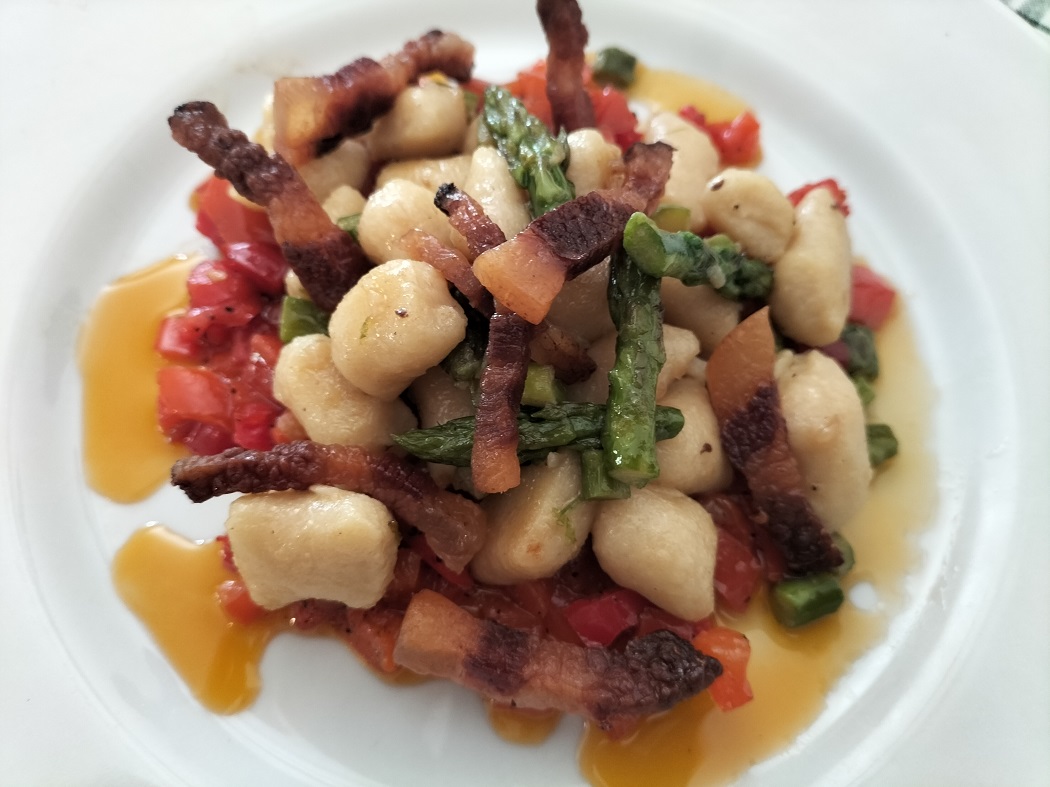The other day I went to visit my sister. I haven't seen her in a long time. I walked into her kitchen and found her contemplating a glass jar, the kind used for pickles, but full of beans.
They look cooked, I told myself in my mind.
She invited me to sit down. And she asked me to listen in silence to what she had to tell me, while I sipped two fingers of whiskey that she had poured me in the meantime. She wanted to tell me the story of Nonna Peppa's beans. The stories of towns are interesting. You should listen too.
A cousin of grandmother Peppa, or a nephew, I never understood well, brought some very good and almost miraculous beans from Castelforte.
They were produced in small quantities by a farmer who then sold them on the black market. They are not very large, have a thin and tender skin and a very tasty pulp: they are very digestible.
They are reminiscent of Atina's cannellini beans, but she says they are different. Even smaller and better. Their best quality is that, unlike other dry beans, they do not put air into the stomach: this together with their exquisite flavour are their greatest strengths.
This is why they are different from all other beans. Grandma Peppa, who is nearly a hundred or so, cooks them in her red brick fireplace, placing the pot right next to the glowing coals. As was done in the past, when there were no modern kitchens.
If necessary, the fireplace is also lit in summer. “Trouble - she says - cooking the beans on the gas. They wouldn't be that good."
To be good, the beans must smell of smoke, oak or olive wood smoke that they get only when cooked against the red-hot coals of the flame. And most importantly, they must cook slowly.
"They must mutter - she says - like Zi Peppucciu."

He is the now old husband, who too, usually, when he doesn't go out to play cards with friends, stays snoring in the armchair in the kitchen after having gulped down a large quart of his red wine.
Grandma Peppa says that sometimes she feels like she is living in an airport, so much is the noise that zi Peppucciu produces while snoring. So to distract herself and to do something good she just has to put the filtered rainwater in the crock she calls pignathu.
Until recently, even though she was already old, every year in August she went on purpose to Ausonia, the village near ours, five kilometres on foot, a nice walk, to the Fair of the Assumption, under the sun, to buy new shards.
Pots, pots and jugs for fresh water.
She put everything in a basket, loaded it on her head and so as not to get hurt she wove a large kitchen towel and put a comfortable ‘shock absorber’ on her head between her skull and the basket.
Nonna Peppa has always cooked and still cooks only in those pots and pans. And she doesn't care if they've been declared carcinogenic and outlawed by now. For years she has always made the same gestures. Like an ancient ritual that cannot be disregarded.
She fills the pot with sponged beans from the night before, in the same water, adds a stick of celery, the garlic crushed between the palms of her hands, which she takes from the garden she grows herself behind the house, and the local extra virgin olive oil from the Corenian Hills.
An oil obtained from the cold pressing of the olives which she still picks by hand, olive after olive, squatting on the ground for hours. She then brings them close to the coals and lets them boil slowly for a few hours covered with a tin lid.
She almost forgets them.
She just occasionally goes back to check the cooking. Maybe add a little water if the cooking water gets too dry. She draws it from another pot that she had already placed to heat next to the pot with beans. If she turns them over, she still gets a stalk of celery and a few cloves of garlic.
''Garlic is good for you! It removes the worms.'' She always tells anyone who comes within range. When the beans are cooked to perfection, she removes them from the heat and, while still warm, puts them in glass jars, in which they are well covered, but only after adding a little more raw oil and a little fresh parsley.
Then she distributes those jars carefully among the many greedy grandchildren and great-grandchildren that she has scattered in every corner of the town. The only reward that she expects, every time and which, every time, she invariably receives, is the echo of the riot of virtual applause that reaches her from all sides.
That's the only certainty that everyone liked her dish. And everyone is wondering when will be the next time that Grandma Peppa will cook that ancient but simple and tasty dish again.
The recipe has one secret ingredient, or rather two. The burning fireplace and the love with which she prepares it. And these will follow her, when she leaves the world of the living. Irremediably.
Well sister, a good story, the next story of the town.
I got up, thanked her, went out of her kitchen and in the gloomy twilight I walked home.








Follow us